The follow-up to Slayaway Camp has landed on Android. Slayaway Camp 2: Puzzle Horror, previously exclusive to Netflix’s gaming lineup since December 2023, is now a standalone release by Blue Wizard Di
Author: PenelopeReading:2
Chat in Minecraft serves as a vital communication tool, enabling players to interact, execute commands, and stay updated with server notifications. Through the chat, players can coordinate strategies, trade resources, ask for help, engage in role-playing, and manage game mechanics. Servers utilize the chat to broadcast system messages, alert players to upcoming events, distribute rewards, and announce updates.
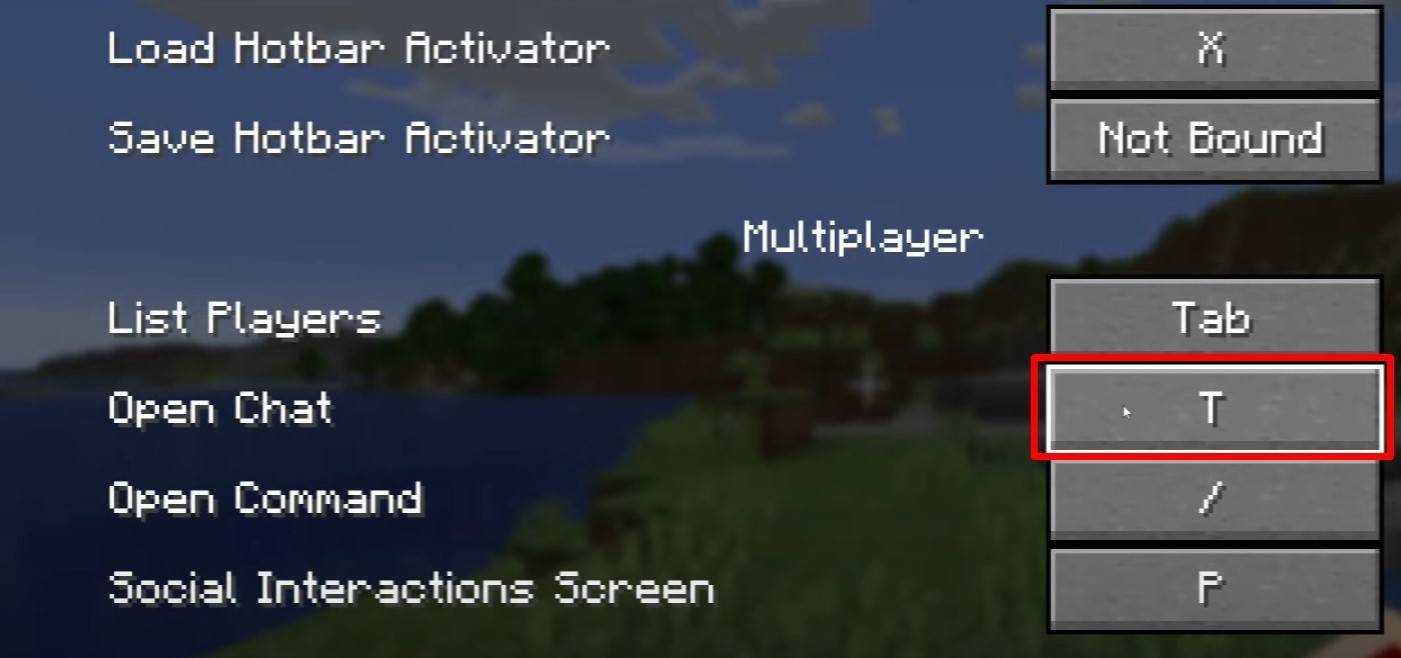 Image: youtube.com
Image: youtube.com
To access the chat, simply press the 'T' key. A text field will appear where you can type your message and hit 'Enter' to send it. If you start your input with a "/", you're entering a command. Some common commands include:
In single-player mode, commands are only functional if cheats are enabled. On servers, the ability to use commands depends on your permissions.
Also read: Take charge of Minecraft: a deep dive into commands
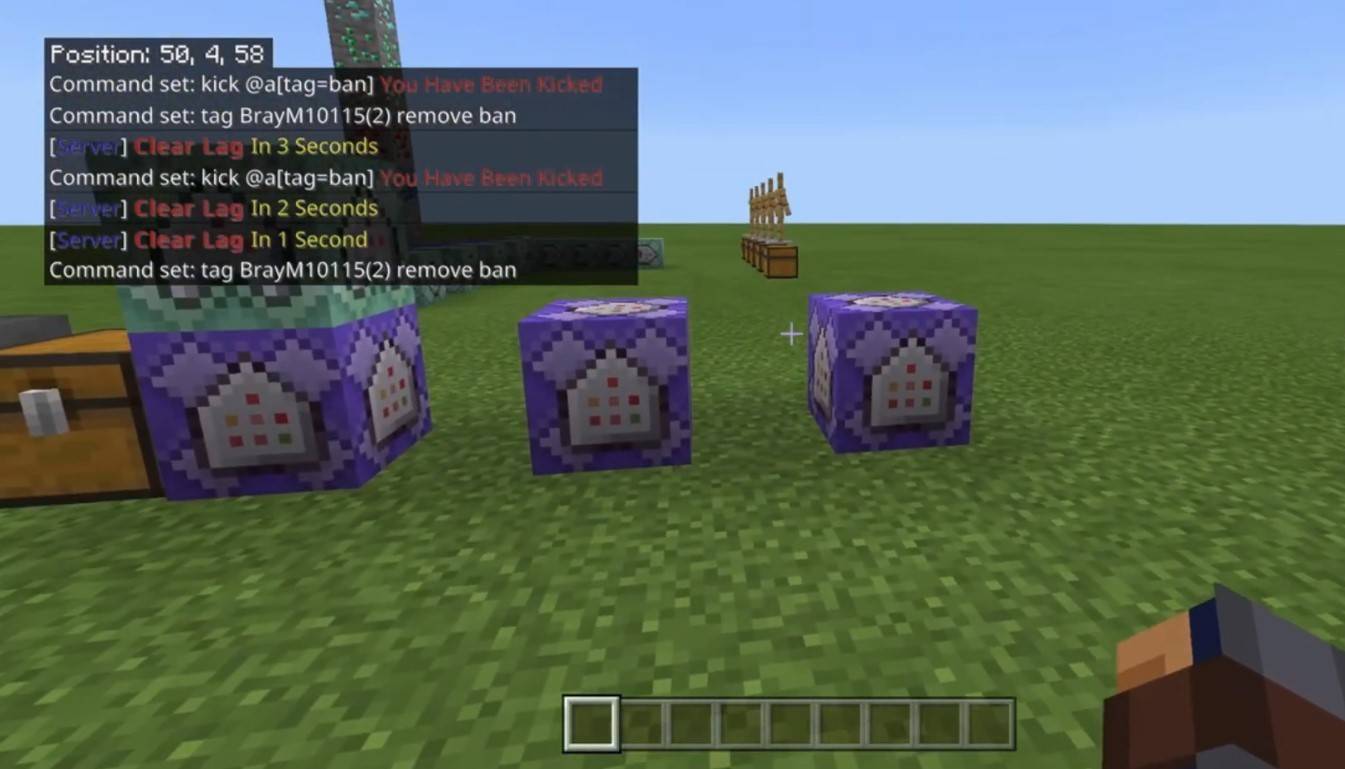 Image: youtube.com
Image: youtube.com
Server communication comes in various forms. The standard chat is visible to all players. For private conversations, use the "/msg" command to send messages that only the recipient can see. Servers with plugins may offer group or team chats, accessed via commands like "/partychat" or "/teammsg". Some servers distinguish between global and local chats: global messages are seen by everyone, while local ones are visible within a specific radius.
Player roles on the server also impact chat interactions. Regular players can chat and use basic commands, while moderators and administrators have additional privileges like muting or banning players. Mute restricts a player's ability to send messages, whereas a ban blocks them from accessing the server.
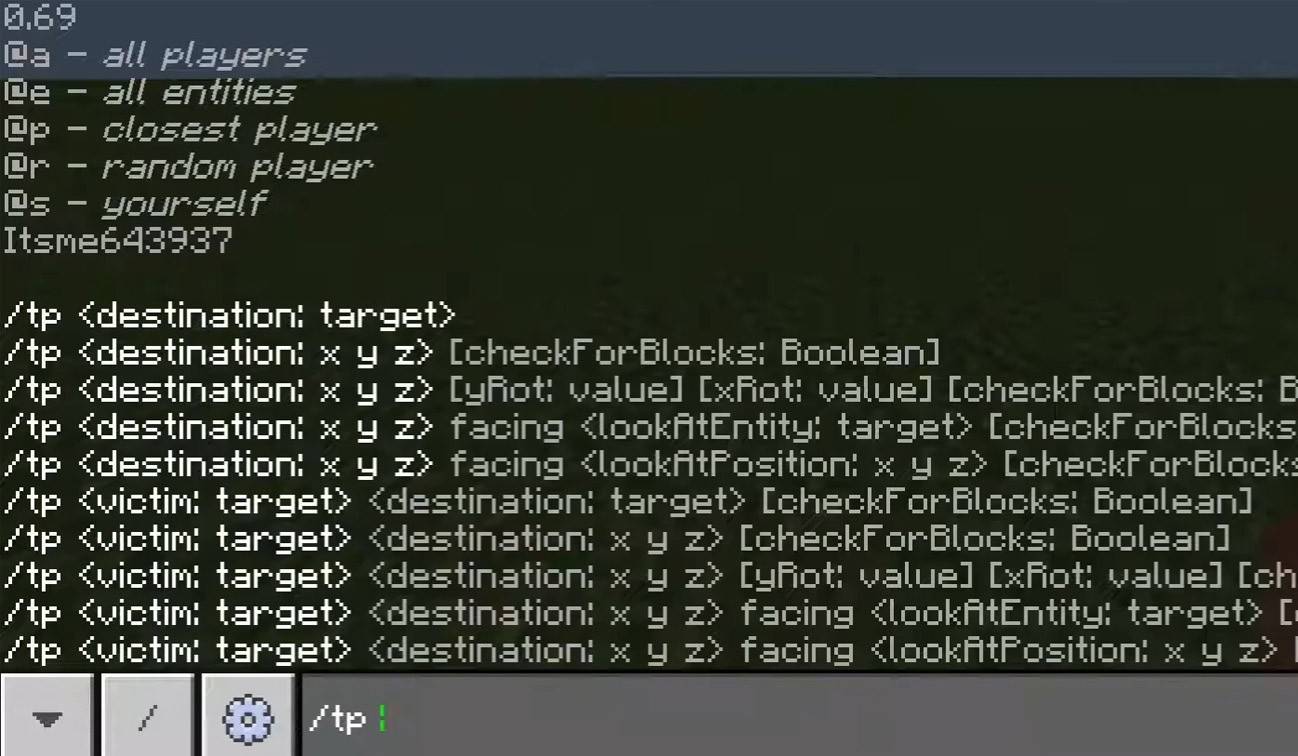 Image: youtube.com
Image: youtube.com
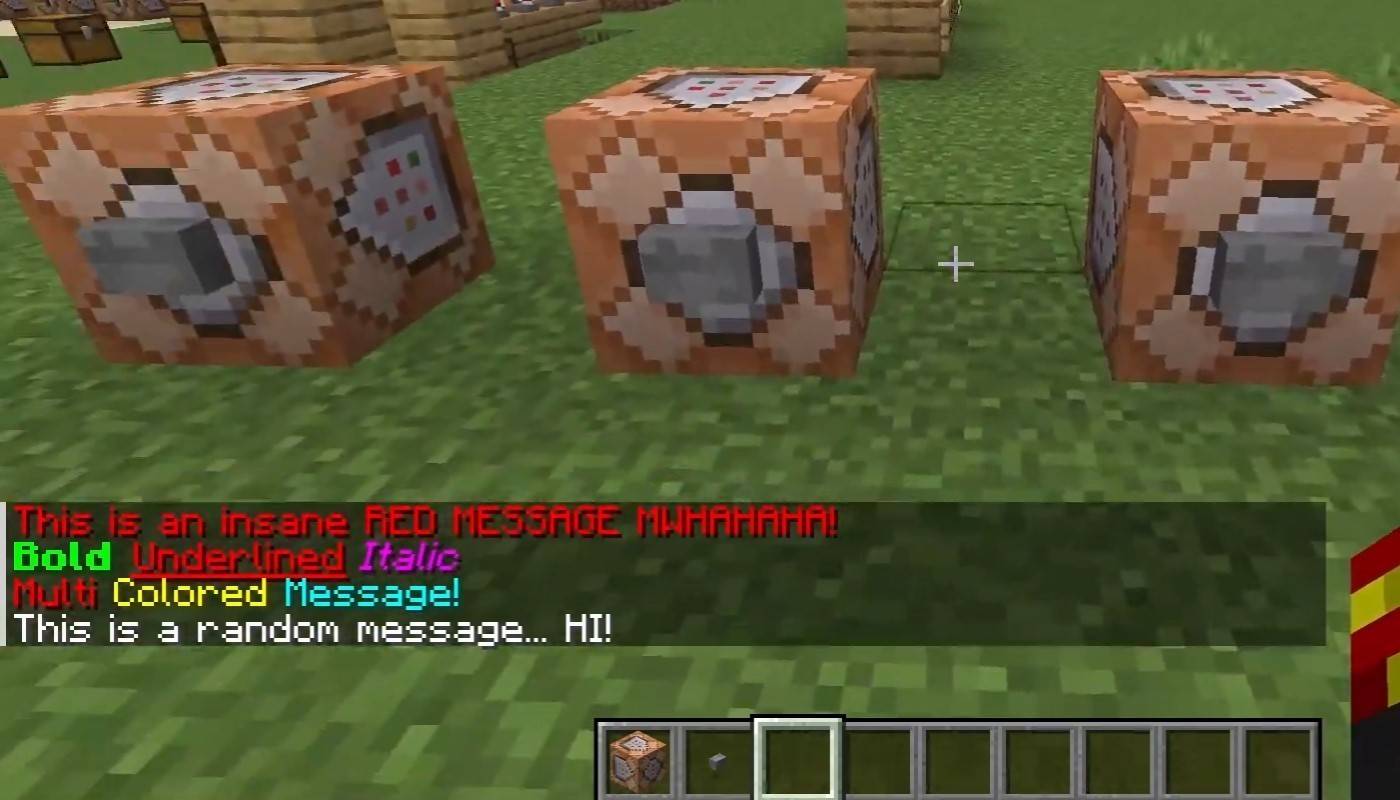 Image: youtube.com
Image: youtube.com
On servers that support text formatting, you can enhance your messages using:
The chat displays various system messages, including player join and leave notifications, achievement announcements like "Player has obtained a diamond pickaxe", server updates, event alerts, and command errors such as "You do not have permission".
Additionally, the chat shows messages about executed commands and game status updates. Administrators and moderators can use the chat to inform players about important changes or server rules.
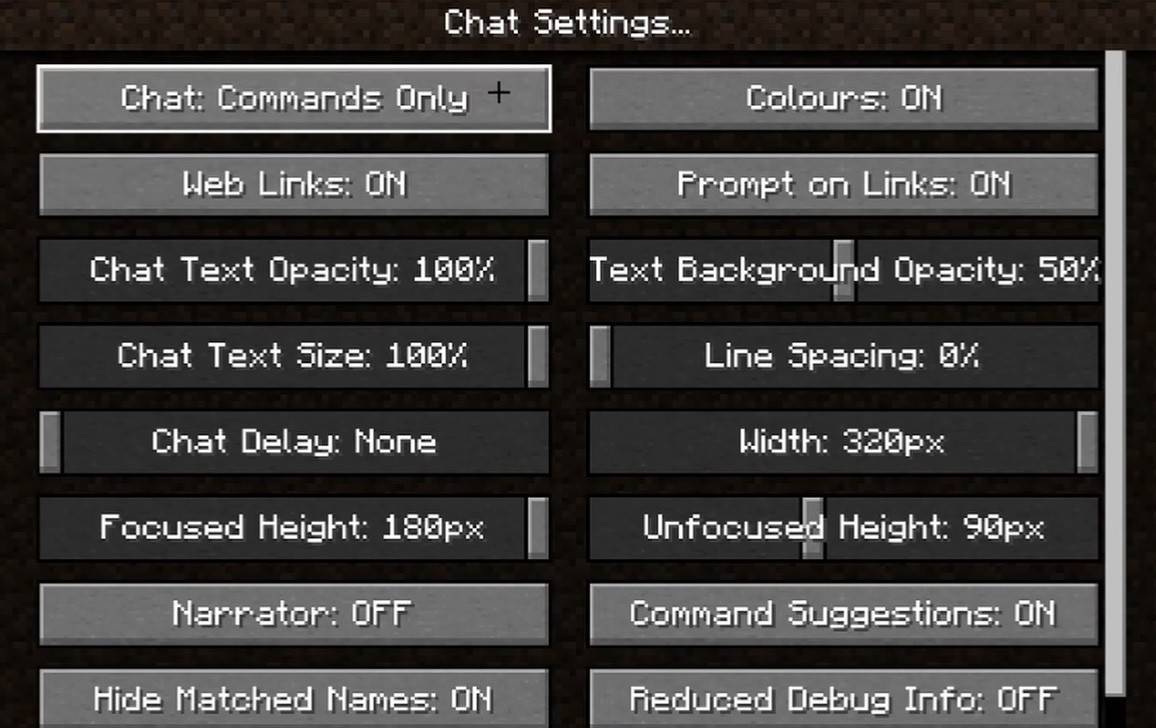 Image: youtube.com
Image: youtube.com
In the "Chat and Commands" menu, you can enable or disable the chat, adjust font size and background transparency, and configure the profanity filter (in Bedrock Edition). You can also customize the display of command messages and change text colors. Some versions allow filtering chats by message type, enhancing the gaming experience for everyone.
In Bedrock Edition, commands function slightly differently (e.g., "/tellraw" has unique usage). Newer Java Edition versions have introduced message filtering and a requirement to confirm sending messages.
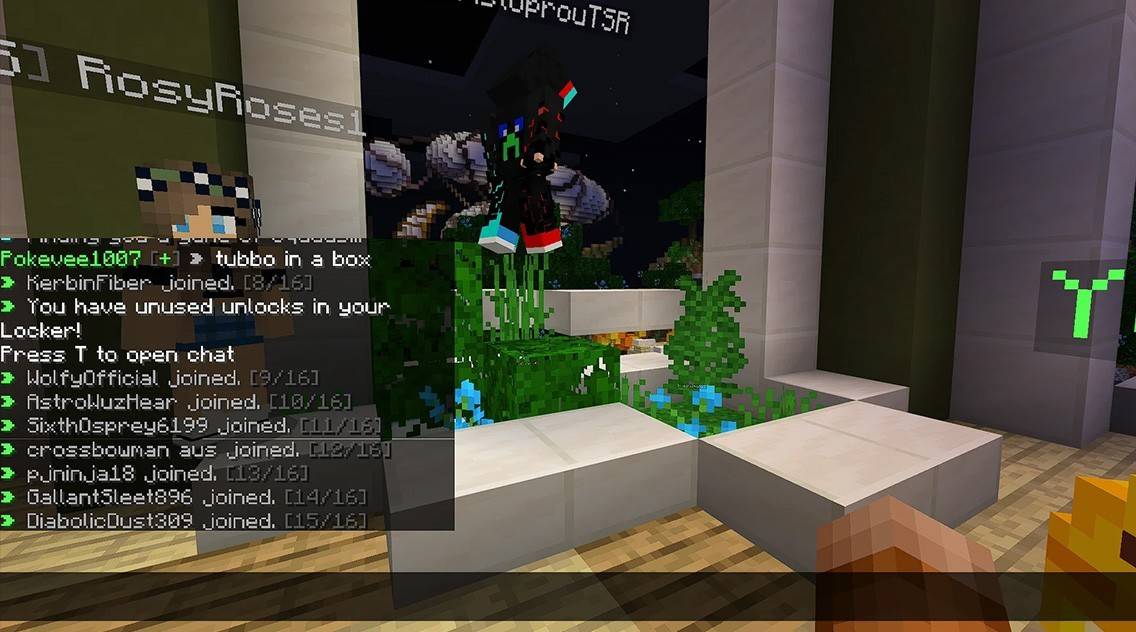 Image: youtube.com
Image: youtube.com
Custom servers often feature auto-announcements to remind players of rules, events, and more. Message filters are common to block spam, ads, profanity, and insults. Large servers may offer additional chat channels, such as trade, clan, or faction chats.
Minecraft's chat system is not just for communication; it's a versatile tool for managing gameplay. With its high degree of customization and numerous commands, understanding the basics allows you to interact effectively with others and leverage all the features the chat offers!
 LATEST ARTICLES
LATEST ARTICLES